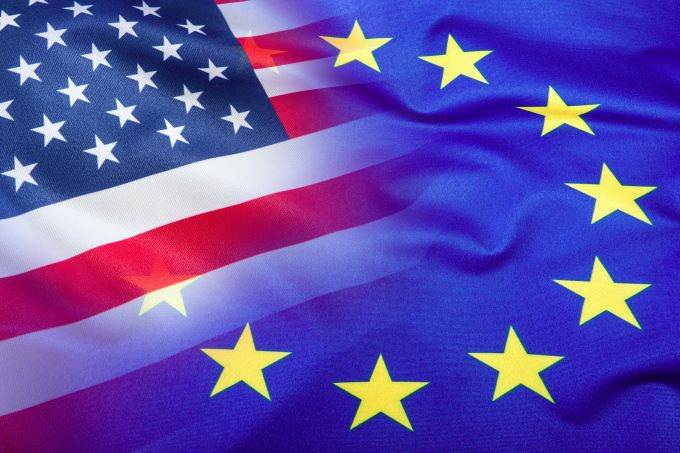Euro Breaks A 9-week Gaining Streak Against The Greenback

Last week, the Euro lost territory against the greenback, breaking a 9-week gaining streak and dropping by 0.39 percent during the week, closing Friday's session at the 1.1795 level.
In terms of the economic calendar, last week the markets learned several relevant pieces of data about the current state of the Eurozone economy. On Tuesday the European Central Bank Vice President Luis De Guindos commented that European banks won't recover before 2022, adding that the rate economic recovery will be fundamental in terms of the financial sector's solvency as well as for the Eurozone’s public accounts' sustainability. Making a reference to the recently released positive economic data about the Eurozone’s economic performance, De Guindos commented that we must be cautiously optimistic about it.
The ECB expects that the economy will grow over 8 percent in the third quarter, which signals a somewhat strong recovery. However, the evolution of this recovery relies on the advance of the pandemic and the reaction of the policymakers to it. At the moment the most affected countries by the advance of the Covid-19 pandemic in the Eurozone are Spain, with 407,879 confirmed cases and a death toll of 28,838, and Italy, which has reported 258,136 confirmed coronavirus cases as well as 35,430 total deaths.
On Wednesday, the European Central Bank announced that the Eurozone current account surplus increased in June, standing at around 21 billion euros after being at 7.95 billion euros in May. July's Consumer Price Index stood at -0.4 percent (month-to-month) after being at 0.3 percent in June, below the analysts' expectations which foresaw it to be at -0.3 percent. In yearly terms, the consumer price index increased by 0.4 percent, unchanged from the previous month's figure, and remaining in line with the analyst's expectations. Excluding the food and the energy sectors, the figure stood at -0.3 percent (month-to-month) after being at -0.2 percent in June and below the analysts' expectations who foresaw it to be at -0.2 percent. In yearly terms, it was at 1.2 percent, remaining unchanged from the previous month's figure and in line with the analysts' expectations. (FXE)
On Thursday Eurostat published the Construction Output figure, which showed a 4.04 percent increase in June (month-to-month) after advancing 29.37 percent on the previous month. In yearly terms, the sector contracted, dropping 5.9 percent in June, after going down by 10.5 percent in the previous month.
The ECB minutes were also released, signaling the concern of the policymakers regarding the outlook. The policymakers also debated about their flexibility in terms of conducting emergency bond purchases. Some policymakers expressed their concern about the size of the bank's Pandemic Emergency Purchase Program, though it remained as a minority opinion. Concerns about the state of the labor markets and investment were also stated.
The release of Market Economics preliminary purchase managers index data on Friday gave the dollar an edge against the Euro. For August, the Eurozone Manufacturing PMI stood at 51.7, signaling an expansion of the sector though at a slower pace compared with the previous month, which stood at 51.8, and below the analysts' forecast which was at 52.9. The services PMI was at 50.1, after being 54.7 on the previous month and way below the analysts' expectations who foresaw it to be at 54.
The PMI composite for the Eurozone was at 51.6 in august, showing an expansion in the business sector though at a slower pace as it stood at 54.9 on the previous month, and below the analysts' expectations who foresaw it to be unchanged.
In contrast, the United States figures showed how the country's business sector outperformed the Eurozone’s. August's preliminary Manufacturing PMI stood at 53.6 after being at 50.9, exceeding the analysts' expectations as they foresaw it to be at 51.9. The services PMI was at 54.8 after being at 50 in July, also over the analysts' expectations which were at 51. The Composite index stood at 54.7, showing the fastest expansion in the business sector compared to the previous month.
Disclaimer: DailyForex will not be held liable for any loss or damage resulting from reliance on the information contained within this website including market news, analysis, trading signals and ...
more



Europe and most of the developed world is better off than the US given our response to Corona virus has been 3rd world-like. The EU economy is starting to bud again, however, Italy, Sweden and other countries Corona rates are still not under control. Hopefully, they will resolve these before they too are adversely affected by a disorganized segmented approach the same way the US is being affected by such a disorganized scheme.
As long as Europe is doing better than the US with Corona their economy and currency will do better. The same will likely happen all over the globe sending a clear economic message: Corona, deal with it or suffer the consequences.